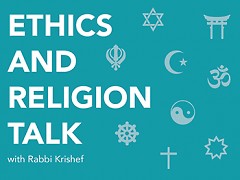The Rev. Sandra Nikkel, head pastor of Conklin Reformed Church, responds:
“There are many things in life that can not be heard or seen: Love, hate, greed, sadness, joy, worry, etc, etc. God created us with an invisible soul which is where all these things live. Every human being is born with an immortal everlasting soul. Humans make things that break, ruin, and spoil. God makes things that last! Although our souls are invisible they will carry our whole being into eternity--and for many, the place is yet to be determined. How we live our lives here on earth depends on what our soul bonds to. Those who abide in God and unite to him will live with him in eternity. "To all who did receive him, to those who believed in his name he gave the right to become children of God children born not of natural descent, nor of human decision or a husband’s will, but born of God. (John 1:12-13).”
Rev. Ray Lanning, a retired minister of the Reformed Presbyterian Church of North America, responds:
“As a Presbyterian, I believe that everyone has an immortal soul. It is the seat of our humanity and our personal identity. Having formed Adam’s body of the dust of the ground, “God breathed into his nostrils the breath of life, and man became a living soul” (Genesis 2:7). As Charles Hodge observed, “It is intuitively certain that mind and matter are two distinct substances; and such has been the faith of the great body of mankind. This view of the nature of man which is presented in the original account of his creation, is sustained by the constant representations of the Bible” (Systematic Theology, Vol. II, p. 43).
“As a spiritual substance, the existence of the soul can only be demonstrated from its inward motions and actions, and the outward effects they produce. Christ provides an apt comparison: “The wind bloweth where it listeth, and thou hearest the sound thereof, but canst not tell whence it cometh, and whither it goeth” (John 3:8). There are visible and audible effects produced by invisible and inaudible causes; and the human soul is one such cause or agent in the universe.”
Father Kevin Niehoff, O.P., a Dominican priest who serves as Adjutant Judicial Vicar, Diocese of Grand Rapids, responds:
“Yes, I believe in an immortal soul. I was taught from a small child on that the body is made of up two parts matter and form (another term for form is being). The matter is the physical form human bodies take. The form is the ability to think and know. This teaching on matter and form concurs with not only my life experiences but also my experience of God.
“Expressing the teachings of Saint Thomas Aquinas is difficult in so few words. Suffice it to say, Saint Thomas developed a hierarchy of being (souls) beginning with minerals, then plants, animals, human beings, souls of deceased human beings, angels and devils, and God. Human beings have their own ration soul that encompasses all the “lower” creatures. This explains why humans may know the world around themselves. In turn, God possesses the souls of all creatures, demonstrating how God may be all-knowing (in Latin, omniscient) and infinite.”
Fred Stella, the Pracharak (Outreach Minister) for the West Michigan Hindu Temple, responds:
“No, Hindus do not believe that we have souls; we believe that we are souls (“atman” in Sanskrit). If we refer to “my soul,” just who is the “my” mentioned? Who ultimately possesses the soul? If there is such a possessor that means that there is something higher than the soul. I would disagree that I cannot “see” the soul. When I am in the presence of someone who is alive I am seeing the soul at work. I don’t see it like I’m seeing this computer in front of me; but I know that this machine is being powered by electricity, which I also cannot see but can observe the results of its existence in the computer.”
My response:
I believe that human beings have souls which are indestructible and, I suppose you could say, immortal. The closest I can come to offering proof, although my belief does not depend on having proof, comes from physics. The Law of Conservation of Energy states that the total energy in a closed system remains constant. That is, energy can neither be created nor destroyed, but only transformed from one state into another. Thus Albert Einstein’s famous equation: Energy = Mass time the square of the Speed of Light. The energy of a human life (i.e., the ‘soul’) cannot be destroyed. Perhaps one could argue that in the closed system of the universe, when the body dies, the soul-energy continues in a new form.
This column answers questions of Ethics and Religion by submitting them to a multi-faith panel of spiritual leaders in the Grand Rapids area. We’d love to hear about the ordinary ethical questions that come up on the course of your day as well as any questions of religion that you’ve wondered about. Tell us how you resolved an ethical dilemma and see how members of the Ethics and Religion Talk panel would have handled the same situation. Please send your questions to [email protected].
The Rapidian, a program of the 501(c)3 nonprofit Community Media Center, relies on the community’s support to help cover the cost of training reporters and publishing content.
We need your help.
If each of our readers and content creators who values this community platform help support its creation and maintenance, The Rapidian can continue to educate and facilitate a conversation around issues for years to come.
Please support The Rapidian and make a contribution today.
